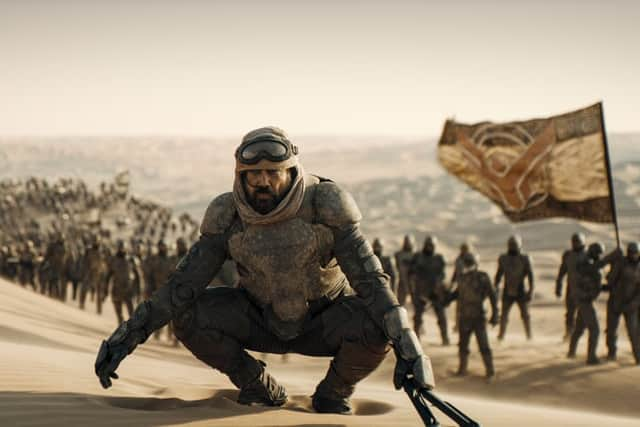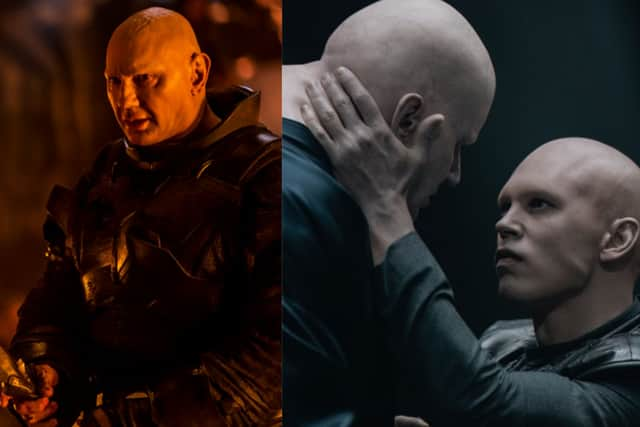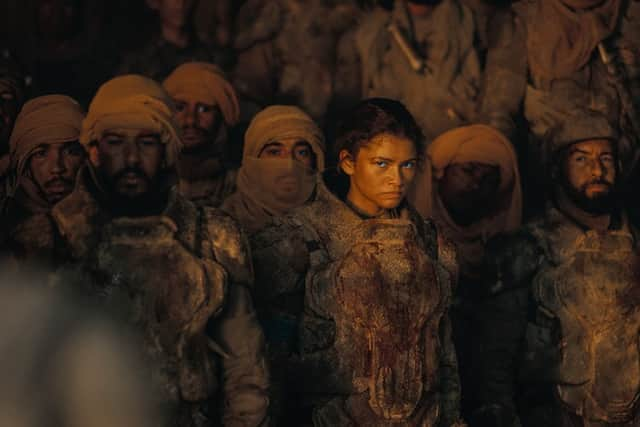Dune: Part II spoilers: film ending explained, who dies in sci-fi sequel - and does it set up a third movie?
and live on Freeview channel 276
Epic sci-fi sequel Dune: Part II came to cinemas in the UK today (March 1) and the awesome story brought the war between Paul Atreides and his Fremen army and the Harkonnen occupiers of Arrakis to a head.
Denis Villeneuve’s film was fairly faithful to the original 1965 novel, written by Frank Herbert, but those who haven’t read the books may be surprised by how the movie ends - it’s not a traditional happy ending to say the least.
Advertisement
Hide AdAdvertisement
Hide AdIf you haven’t seen Dune: Part II yet, then be aware that this article contains major spoilers for the movie’s plot. If you want to understand what exactly the ending means, read on.


What happens in Dune: Part II?
In the sequel Paul quickly gains the respect of the Fremen, as Stilgar and many others believe he is the messiah, come to save them from the Emperor and take their planet back.
He learns to ride the sandworms and falls in love with Fremen fighter Chani, though she is disturbed by his growing status as a religious figure among her people. The Fremen carry out a series of guerrilla attacks on Harkonnen spice miners, and in one attack they encounter Gurney Halleck, a loyal follower of Paul’s father, and Paul brings him back to the Fremen base.
Paul’s mother Lady Jessica drinks a deadly poison in a Bene Gesserit ceremony and survives, becoming the Reverend Mother - however, she was pregnant at the time and the poison gave her unborn daughter strange abilities.


Advertisement
Hide AdAdvertisement
Hide AdOn the capital Arrakeen, the Baron brings in his nephew Feyd-Rautha to take over from Glossu Rabban in securing spice production and destroying the Fremen strongholds.
Feyd-Rautha has more success, bringing the north of the planet under Harkonnen control through the use of heavy artillery, however, the Fremen move south where they prepare for a major attack on the Arrakeen.
As news of the disruption on Arrakis spreads, the Emperor comes to the planet to meet with the Harkonnen leadership - he has his men crippled the Baron for his failure to anticipate the Fremen threat from the south.
Paul leads the Fremen attack, warriors ride sandworms into battle, and due to Gurney’s knowledge of the nuclear arsenal, send a barrage of bombs to devastate the Harkonnen defences.


Advertisement
Hide AdAdvertisement
Hide AdGurney meets Glossu Rabban in battle and quickly kills him, and as the Harkonnen warriors are worn down Paul marches into the main hall where the Emperor, Baron, Feyd-Rautha, and the remaining enemy forces are.
He kills the Baron and demands revenge through combat for the massacre of his house from the Emperor. Feyd-Rautha steps up as the Emperor’s champion and the two cross swords, in the intense fighting Paul is stabbed but he manages to get the better of his opponent and kills him. He then demands to marry the Emperor’s daughter Princess Irulan and becomes the Emperor himself.
However, the other great houses do not accept Paul’s ascension as emperor and so in the final scenes of the movie, he sends the Fremen forces into a holy war, whilst Chani, who is devastated that Paul chose to marry another woman, leaves the Fremen, and travels into the desert on her own.
What does the Dune: Part II ending mean?
There’s a lot to unpack from the final moments of the film - many of the key players, Rabban, Feyd-Rautha, and The Baron are dead, whilst the former emperor has lost power.
Advertisement
Hide AdAdvertisement
Hide AdPaul’s alliance through marriage with Princess Irulan mirrors his father’s decision to marry for political purposes rather than for love. Chain is clearly devastated by the decision, which she seemed to have no prior warning of, and leaves Arrakeen heartbroken.


However, the biggest shock from the ending of the movie is that Paul’s terrible premonitions come true - through his decision to launch a holy war which will spread throughout the empire, billions will die.
Whilst Paul is presented as the hero of the story throughout the first two films, the final moments of Part II show that he will be responsible for more bloodshed than the Baron and even the former Emperor. In the Frank Herbert books, Paul’s jihad results in the deaths of more than 60 billion people across thousands of planets.
So Dune’s ending is not as happy as many may have expected - whilst Paul and the Fremen were able to defeat the Harkonnen army, they actually became a far greater destructive force.
Does Dune: Part II set up a third movie?
Advertisement
Hide AdAdvertisement
Hide AdYes, despite the fact that a third film has not been officially confirmed by Warner Bros, Part II certainly leaves the way open for another movie.
The ending starts with the very beginning of a holy war that will spread across the universe - it also sees Chani setting off on her own journey away from Paul.
You may expect a third film to take place during this terrible holy war, and it may do, but the plot of the next Dune book, Messiah, actually begins around 12 years after the events of Part II in midst of this war, with billions already dead, with Paul powerless to stop the fighting.
Comment Guidelines
National World encourages reader discussion on our stories. User feedback, insights and back-and-forth exchanges add a rich layer of context to reporting. Please review our Community Guidelines before commenting.
